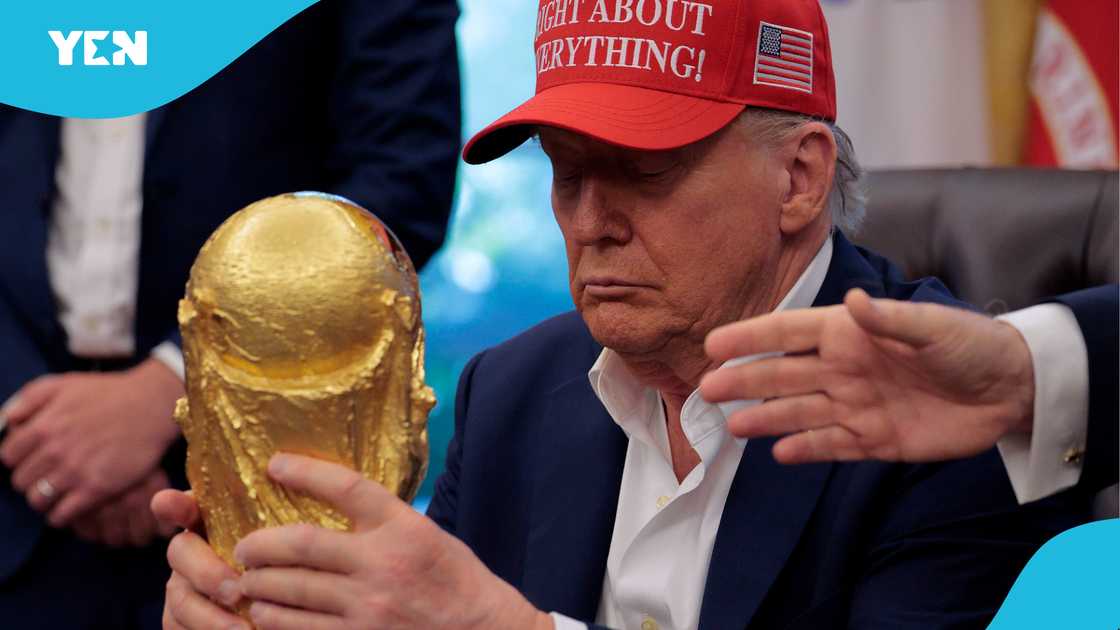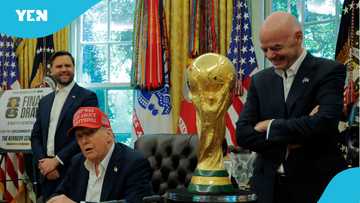- Six nations face the possibility of missing the 2026 World Cup as a result of Donald Trump’s proposed travel ban
- One has already booked its place at the tournament, while the others remain in the qualification race but risk being denied entry to the host nation
- FIFA is said to be in talks with the U.S. government to ensure every qualified team can take part
The 2026 FIFA World Cup, to be hosted across the United States, Mexico, and Canada, is set to be a landmark event in football history.
But a major controversy is looming, as six nations may be barred from taking part due to a proposed travel ban by U.S. President Donald Trump.
If enforced, the restrictions could stop players from certain countries – some still vying for qualification – from entering the U.S. for the tournament, regardless of their performance on the pitch.

Source: Getty Images
Trump’s Travel Ban and Its Possible Impact on the World Cup
A New York Times report from March 14 revealed that the Trump administration is weighing plans to restrict travel for citizens from as many as 43 countries – including some whose national teams are still battling for World Cup qualification.
Iran, which has already secured its place at the tournament, is said to feature on a draft list of affected nations.
The proposal reportedly divides countries into three categories: Red (full travel ban), Orange (severe visa restrictions), and Yellow (a 60-day grace period to address concerns before restrictions take effect).
Iran is believed to be placed in the “Red” category, which would block its team from entering the U.S. and potentially rule them out of the 2026 World Cup.
Which Other Nations Could Be Affected?
Alongside Iran, six other countries still in contention for a place at the 2026 World Cup may also be at risk.
These include Sudan, Cameroon, Burkina Faso, Cape Verde, DR Congo, and Venezuela. Reports suggest Sudan, Venezuela, and Iran are listed in the “Red” category, which would impose a full travel ban.
The remaining nations also appear on the draft restrictions list in some form, placing their potential World Cup participation in serious doubt.
How can this issue be resolved?
If the travel ban is enforced, it could set a dangerous precedent, undermining the integrity of the World Cup and excluding teams based on political decisions rather than sporting merit.
As the situation develops, FIFA, national football federations, and human rights groups are expected to weigh in on the issue, with hopes of finding a solution that upholds the principles of fair play and inclusivity in global football.
With the Mundial less than a year away, discussions are already underway to find a resolution.
As reported by beIN Sports, FIFA has begun talks with the U.S. government to explore potential exemptions for affected teams.
Given that FIFA mandates host nations to ensure that all qualified teams can participate, pressure is mounting on U.S. officials to provide assurances that players from restricted countries will be able to enter the country.
Source: YEN.com.gh
Source: Yen.com.gh












